Thickness
Within our range of engineered hardwood floors there are different thicknesses of the planks of flooring. The thicknesses range from 13mm to 22mm depending upon the size of wear layer (top layer of solid wood) and how many base layers the plank has. Generally speaking, engineered wood flooring is made up of a top layer, or wear layer, of solid wood. This is determined by the species of wood and the type of surface finish that you choose. This is important as this is the only part of the flooring that you will see once it has been installed. The wear layer of solid wood can vary in thickness from 2.5mm to 6mm. Underneath this wear layer, is a number of base layers of different types of wood, which have been bonded together with adhesive under extreme pressure to give the engineered flooring its strength and durability.
The thickness of the planks of engineered wood flooring really depends upon the thickness of the wear layer and the amount of base layers that the flooring has. To find out more about how engineered wood flooring is made, see our article: What is engineered wood flooring?
Which thickness of flooring should I choose?
When choosing engineered hardwood flooring the thickness can be quite an important factor. You will need to think about where the flooring is going, for example if you are going to install it into a busy hallway or living area then you may want a thicker board, simply so that it can be sanded down multiple times as it will inevitably gain scuffs and marks over the years. Generally, thicker boards have thicker wear layers so can be sanded and re-finished more often. However, if the flooring is for a room with less footfall then a thinner plank will be more than sufficient and can still be sanded and refinished a couple of times.
It is important to remember that the thickness of the plank does not affect the quality of the hardwood floor in any way. Usually a thinner board can be found cheaper than a thicker board, due to the amount of materials and the time spend manufacturing the floor. Also, if you want to lay your new flooring directly over joists then it is essential that you have a plank that is at least 18mm thick in order to ensure it has stability and the correct load bearing properties to carry out this job.
If you are using underfloor heating then it is advised that the thickness of the flooring is a maximum of 15mm to allow the appropriate transfer of heat through, unless of course you have underfloor heating with joists, and then you will still need a thickness of at least 18mm for the strength.
Are there any alternatives available?
In our engineered flooring range we have a thicknesses ranging from 13mm to 22mm, but if you are looking for something slightly different have a look at our solid wood flooring or laminate flooring.
Here are some links to solid wood flooring in different thicknesses:
18mm Solid Wood Flooring | 20mm Solid Wood Flooring
Further help and advice
If you would like to see samples of any of the styles or thicknesses of flooring you are interested in, visit our sample page to order your free samples today. For any further technical advice or help then either contact us or pop into our showroom where we will be happy to help.
-
 150mm Brushed & UV Oiled Engineered Natural Charnwood Oak Click Wood Flooring 1.08m²From £34.98m² Inc. VATRandom150 mm14 mm1.08 ㎡
150mm Brushed & UV Oiled Engineered Natural Charnwood Oak Click Wood Flooring 1.08m²From £34.98m² Inc. VATRandom150 mm14 mm1.08 ㎡ -
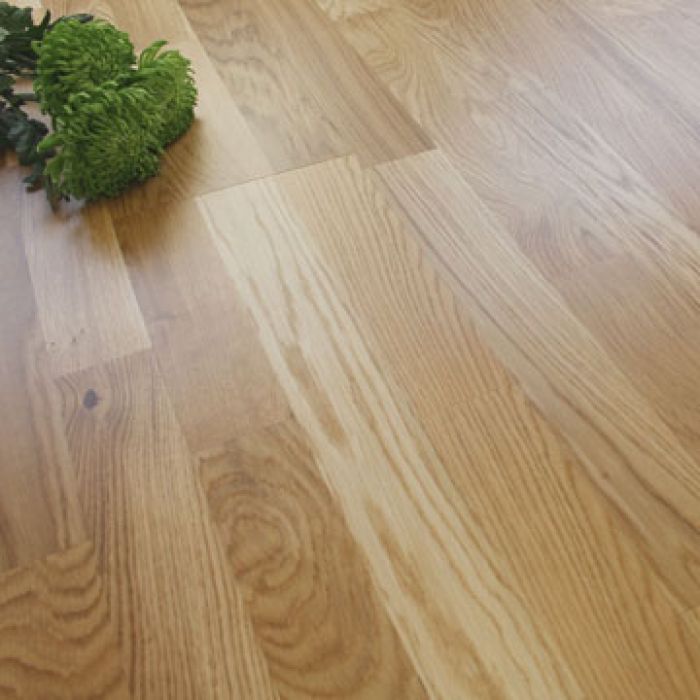 207mm Engineered Matt Lacquered Three Strip Rustic Oak Wood Flooring 3.18m²From £37.13m² Inc. VAT2200 mm207 mm14 mm3.18 ㎡
207mm Engineered Matt Lacquered Three Strip Rustic Oak Wood Flooring 3.18m²From £37.13m² Inc. VAT2200 mm207 mm14 mm3.18 ㎡ -
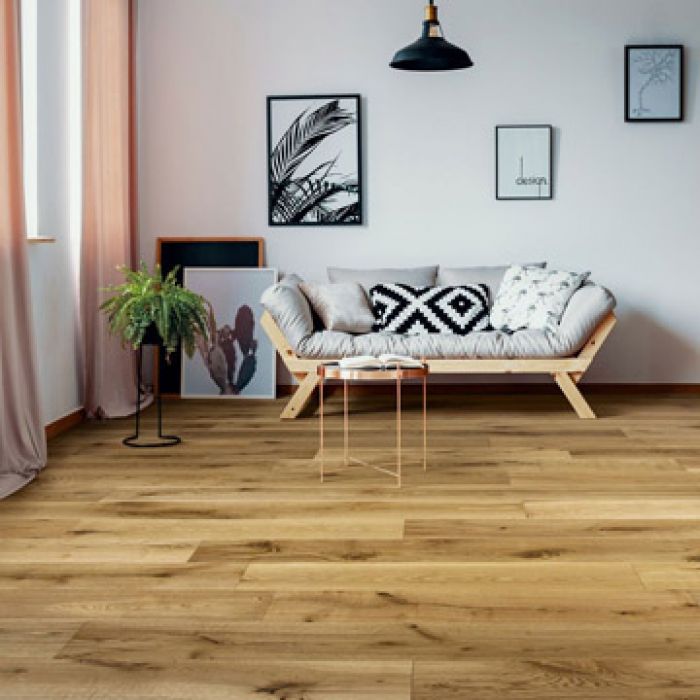 190mm Engineered Brushed & UV Oiled Natural Charnwood Oak Flooring 2.166m²From £37.99m² Inc. VATRandom190 mm14 mm2.17 ㎡
190mm Engineered Brushed & UV Oiled Natural Charnwood Oak Flooring 2.166m²From £37.99m² Inc. VATRandom190 mm14 mm2.17 ㎡ -
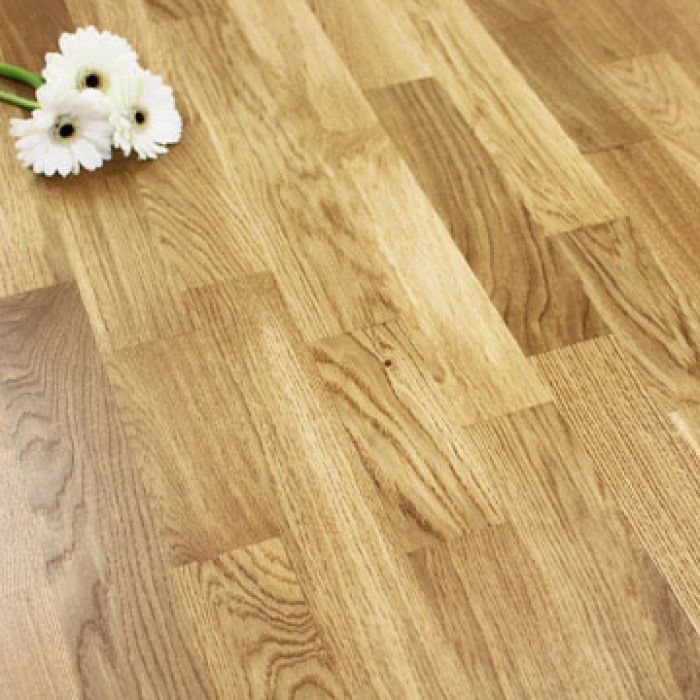 3-Strip Lacquered Engineered Rustic Oak Click Wood Flooring 1.92m²From £38.70m² Inc. VAT2200 mm200 mm13 mm1.92 ㎡
3-Strip Lacquered Engineered Rustic Oak Click Wood Flooring 1.92m²From £38.70m² Inc. VAT2200 mm200 mm13 mm1.92 ㎡ -
 125mm Engineered Matt Lacquered Rustic Oak Wood Flooring 2.2m²From £39.18m² Inc. VATRandom125 mm14 mm2.20 ㎡
125mm Engineered Matt Lacquered Rustic Oak Wood Flooring 2.2m²From £39.18m² Inc. VATRandom125 mm14 mm2.20 ㎡ -
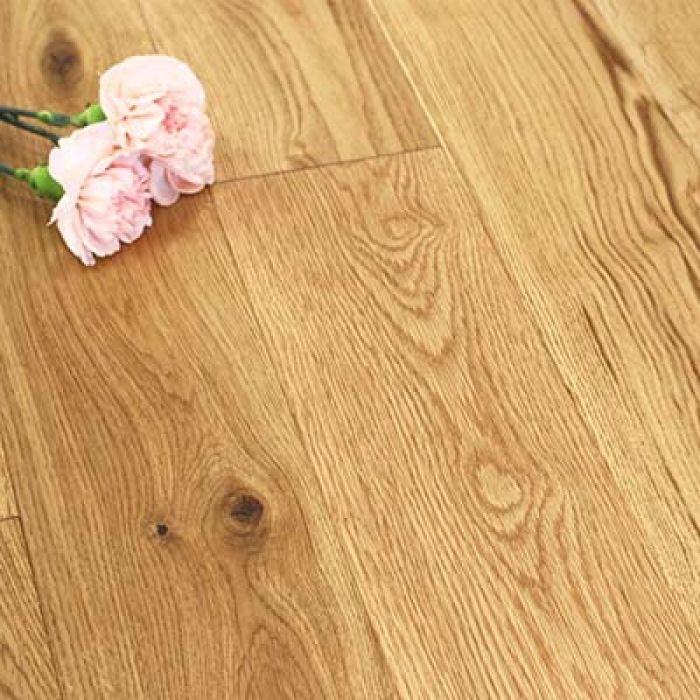 125mm Brushed & UV Oiled Engineered Oak Click Wood Flooring 2.2mFrom £40.20m² Inc. VATRandom125 mm14 mm2.20 ㎡
125mm Brushed & UV Oiled Engineered Oak Click Wood Flooring 2.2mFrom £40.20m² Inc. VATRandom125 mm14 mm2.20 ㎡ -
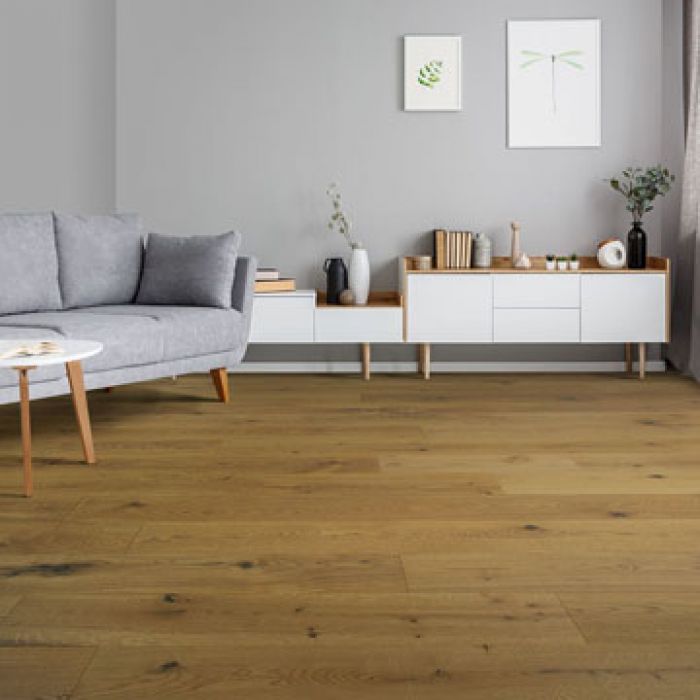 190mm Engineered Brushed & UV Oiled Smoked Charnwood Oak Flooring 2.166m²From £41.40m² Inc. VATRandom190 mm14 mm2.17 ㎡
190mm Engineered Brushed & UV Oiled Smoked Charnwood Oak Flooring 2.166m²From £41.40m² Inc. VATRandom190 mm14 mm2.17 ㎡ -
 190mm Engineered Brushed & UV Oiled Dark Smoked Charnwood Oak Flooring 2.166m²From £41.99m² Inc. VATRandom190 mm14 mm2.17 ㎡
190mm Engineered Brushed & UV Oiled Dark Smoked Charnwood Oak Flooring 2.166m²From £41.99m² Inc. VATRandom190 mm14 mm2.17 ㎡ -
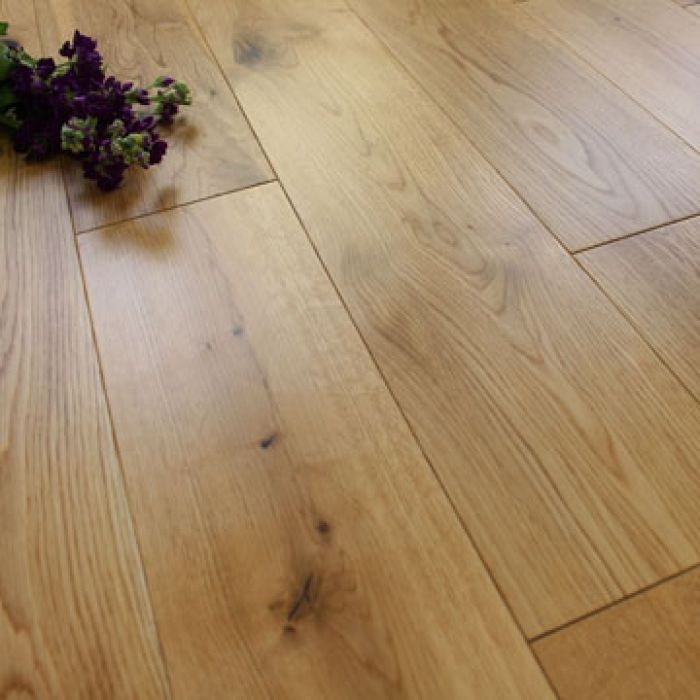 150mm Engineered Matt Lacquered Rustic Oak Wood Flooring 2.64m²From £42.24m² Inc. VATRandom150 mm14 mm2.64 ㎡
150mm Engineered Matt Lacquered Rustic Oak Wood Flooring 2.64m²From £42.24m² Inc. VATRandom150 mm14 mm2.64 ㎡ -
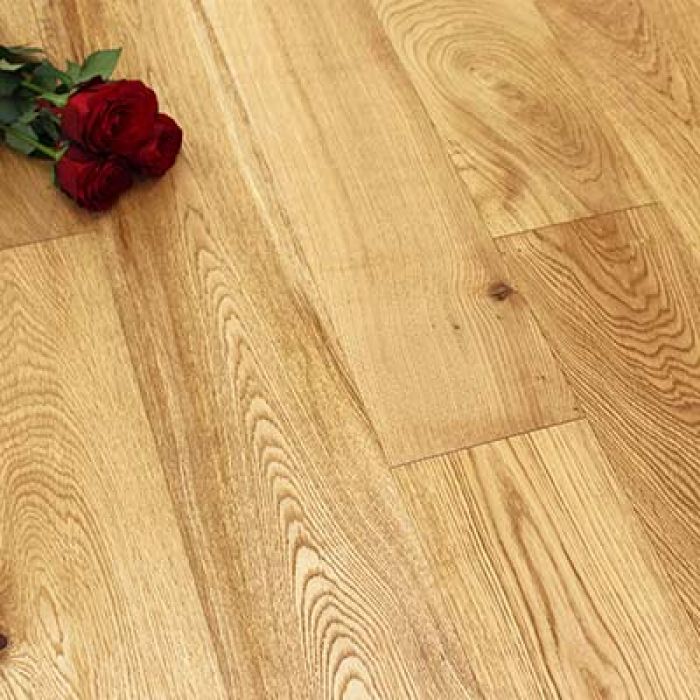 150mm Brushed & UV Oiled Engineered Oak Click Wood Flooring 2.64m²From £42.24m² Inc. VATRandom150 mm14 mm2.64 ㎡
150mm Brushed & UV Oiled Engineered Oak Click Wood Flooring 2.64m²From £42.24m² Inc. VATRandom150 mm14 mm2.64 ㎡ -
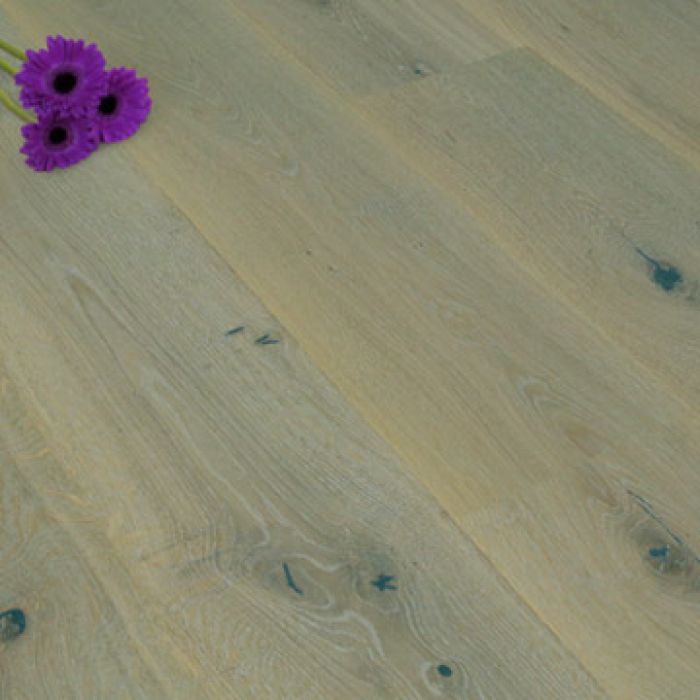 190mm Engineered Washed Pebble Grey Brushed & Oiled Oak Click Wood Flooring 2.075m²From £43.19m² Inc. VAT1820 mm190 mm125 mm2.08 ㎡
190mm Engineered Washed Pebble Grey Brushed & Oiled Oak Click Wood Flooring 2.075m²From £43.19m² Inc. VAT1820 mm190 mm125 mm2.08 ㎡ -
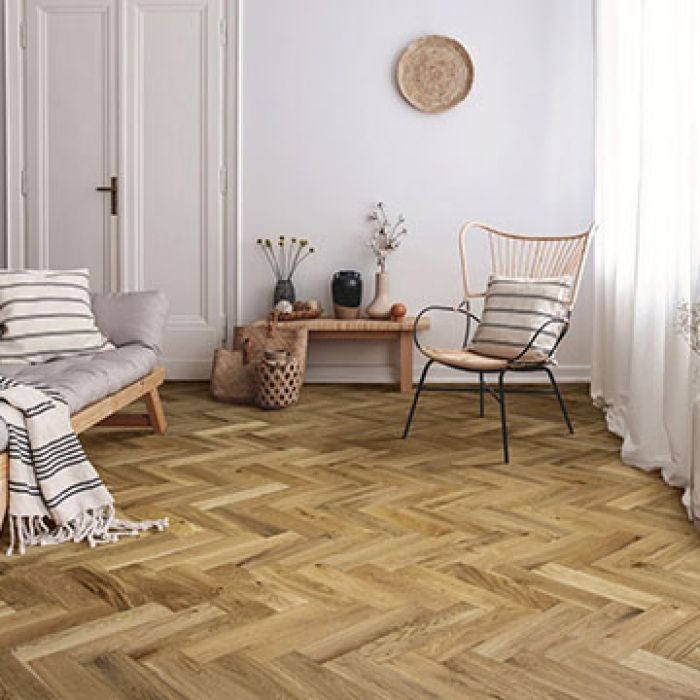 90mm Engineered Brushed & UV Oiled Natural Charnwood Oak Parquet Block Wood Flooring 1.07m²From £43.20m² Inc. VAT360 mm90 mm15 mm1.07 ㎡
90mm Engineered Brushed & UV Oiled Natural Charnwood Oak Parquet Block Wood Flooring 1.07m²From £43.20m² Inc. VAT360 mm90 mm15 mm1.07 ㎡

